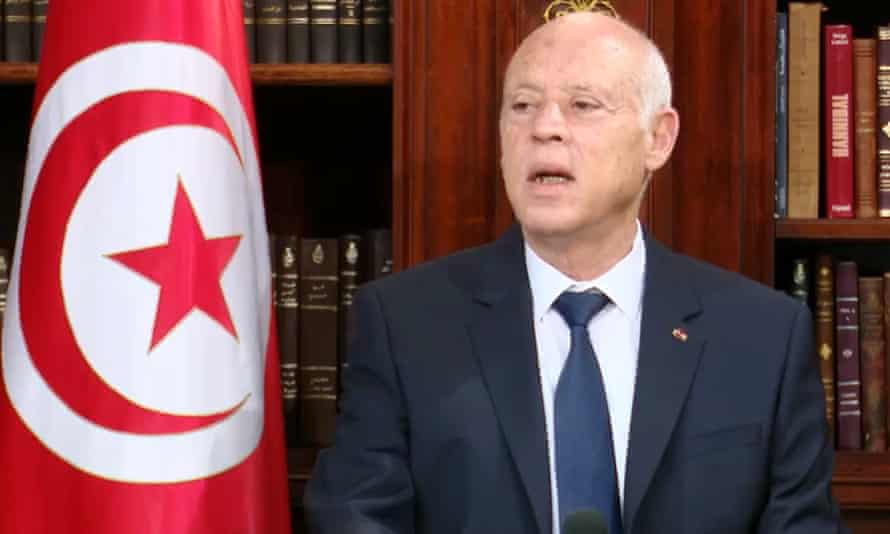Originally posted to The Guardian website, 27 July 2021
Analysis: while the politics behind the government’s dismissal are local, regional players will want to influence what happens next
In the decade since the Arab spring, the crucible of the uprisings has been where its legacy has been thrashed out.
Tunisia, Egypt and Libya, where it all began from mid-December 2010, have remained central to the narrative of what took place when autocracies crumbled in the face of restive streets. And for the region’s powerbrokers, all three north African states have since been the centre of an even bigger tussle for influence.
Lined up on one side has been the so-called Arab nationalist police states – led by the United Arab Emirates, Saudi Arabia and a resurgent Egypt, which regrouped after the bloody coup of 2013 and won back the protection of Abu Dhabi and Riyadh. On the other has been Qatar, Turkey and the remnants of the Muslim Brotherhood, brutally ousted by Egypt’s leader, Abdul Fattah al-Sisi, and protected by Doha and Ankara.
The fate of the brotherhood has formed a fault line over which both axes have dug in. A brotherhood-leaning party, Ennahda has dominated Tunisia’s affairs for much of the past 10 years. And earlier this year a government was formed in Libya – with the agreement of Turkey, a staunch foe of the UAE, which claims to be watching and waiting.
However, after fighting costly proxy wars in Libya and spending lavishly to prop up Egypt, Abu Dhabi would appear to have a stake in the fate of Tunisia, too.
The overthrow of Tunisia’s government on Sunday night appears to have stemmed from a convergence of events; the painfully slow creep towards democratic norms, a crumbling economy and a global slowdown that offered little encouragement of a corner about to be turned. Indeed, the reaction to a coup – which shocked much of the region – was decidedly mute on the home front. While the politics of the coup appeared to be domestic, the stance of regional players, including the UAE remains unclear for now.
Tunisia had been staunchly backed by Turkey’s leader, Recep Tayyip Erdoğan, whose inroads into the politics of the Arab world remain deeply resented by the UAE’s leaders, some of whom believe Libya has yielded meagre returns as a political investment and fear the consolidation of political Islam.

Kais Saied, Tunisia’s new strongman, has vowed to take on the ruling Ennahda party. And after making short work of the country’s prime minister, who went quietly after his sacking, he appears to face few obstacles – for now – in consolidating his new power.
On the streets of Tunis, the politics of the government’s overthrow are very much local; a fatigued people, many of whom have lost faith in the pace of change and lost trust that the raw, stumbling, Tunisian democratic experiment can deliver. If domestic events have indeed been the sole driver of such an anti-democratic move, the region’s heavyweights will be watching closely – several without compunction.
However, there was a growing belief in some European capitals on Tuesday that some of their regional counterparts were not unhappy with developments.
Link to the original post: https://www.theguardian.com/world/2021/jul/27/the-powerbrokers-of-the-arab-world-will-be-closely-watching-events-in-tunisia


